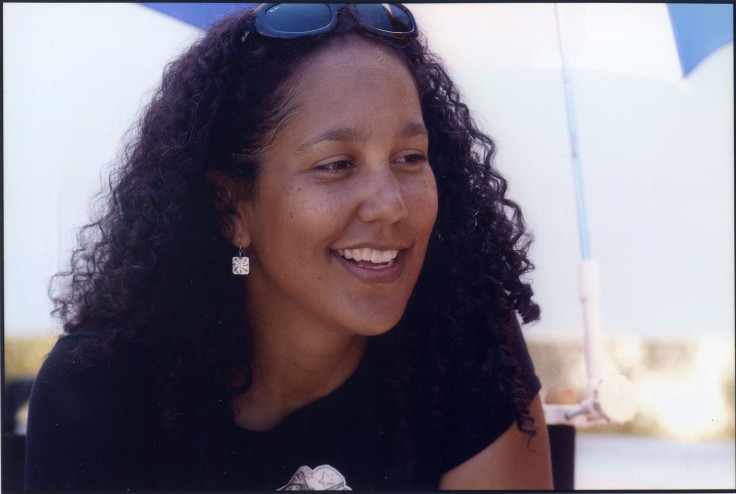‘Beyond The Lights’ Director Gina Prince-Bythewood Discusses Lack Of Diversity And Female Filmmakers In Hollywood

There has been plenty of talk recently about diversity in Hollywood, but only film festivals have openly addressed the industry gap in films by women or people of color. The female-focused Athena Film Festival, now underway in New York City, is one such spotlight for women to show their work, network and receive training from directors and producers who have broken through the celluloid ceiling. Enter “Beyond the Lights” director Gina Prince Bythewood, whose film is showing at Athena and who is this year’s chosen director to give a master class at the festival.
We spoke with Prince-Bythewood ahead of her presentation Sunday at Barnard College:
IBTimes: Your film “Beyond the Lights” came out late last year, six years after your previous one, "The Secret Life of Bees." Why did it take so long for the new film to arrive?
Gina Prince-Bythewood: It took a lot longer than I thought it was going to take, given the success of “The Secret Life of Bees” and the nature of the film. It was a contemporary film and a love story, and it featured two people of color. I know that’s a little tougher, but it took two years to find a home. A lot of studios turned it down twice. But everything happens for a reason. I didn’t want it to take that long, but it ended up at a studio where I did have creative control of the picture and got the film cast the way I wanted to with Gugu Mbatha-Raw and Nate Parker. In the end, it is now rare to look up at the screen and see what was in your head. It’s becoming more and more evasive in the process. I’m able to look up at the screen and be proud of what I’m looking at.
IBTimes: So is that where women-centric film festivals like Athena come into play?
Prince-Bythewood: Absolutely! That we have to have it in 2015, and we’re going to keep having this conversation 20 years later, but there are so few filmmakers in the door. I cannot tell you why; it makes no sense whatsoever. There’s a great deal of women in film school. I was not the only woman in my class at UCLA. When I went through the Sundance program, it was half women and half men. So where does that block happen once you get to the studio levels?
Fewer films get made, but the issue is really not just so few female filmmakers, it’s also that female point of view. The film could have a female protagonist or it’s a female protagonist written and directed from a female point of view. Even if we do get the opportunities to have a lead female, 90 percent of the time she’s been written and directed by a man. There’s a difference of what you’re going to focus on, how you’re going to portray that character or what is important to that character. It’s a little frightening to think that girls and women will go to the movies looking at our reflection, but that reflection is not a true reflection of who we are. It’s not from our point of view.
IBTimes: You’re holding a directing master class at Athena. What are you hoping to impart to attendees?
Prince-Bythewood: I just remember when I came out of film school -- and I loved film school -- that the industry was such a mystery. How to break in, and once you are in, how to make a film that is such a large undertaking. There are thousands of pitfalls. “Beyond the Lights” was my fourth film. I gained a lot of knowledge, and I’m excited to share that with young filmmakers because I know how lost I was coming out of film school with that question of “what’s next?” I want to impart that knowledge though my film, but I want to [talk about] the importance of passion and being passionate about your work. You have to overcome a thousand noes in this industry, but it just takes one yes. What can sustain you is that passion.
IBTimes: For male filmmakers wondering how to keep their female colleagues in the industry, what would you suggest?
Prince-Bythewood: Well, the best way to do it is to hire female directors, hire female writers. It’s as simple as that. For me, being in the position that I’m in, I feel a responsibility to reach back and find those female directors and also people of color, people who have talent. [I try to] reach in and mentor, to read their script, to introduce them to people in the industry. Really try and get them through the doors I am fortunate enough to have passed through.
IBTimes: What would you say to the studio execs who aren’t giving women and people of color a chance?
Prince-Bythewood: It’s as simple as [saying] "it’s not a gamble." Talent has no gender. People are hiring young male directors right out of film school, off of a student film or off of a film at Sundance for millions of dollars. You can do the same with a female. It’s not a risk about the work if you respect the film that they made. You see something in that and nurture that and give them a shot. Men fail and women fail, but more often than not, you hope they succeed. Just take the chance, because it’s not a gamble.
The Athena Film Festival runs through Sunday at Barnard College in New York City. For more information and screening schedule, check out its site.
© Copyright IBTimes 2024. All rights reserved.












